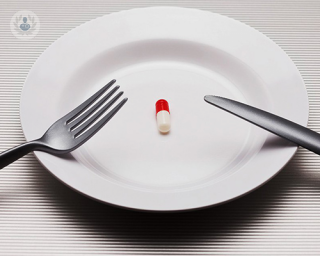Diabetes diet
Professor Barbara McGowan - Endocrinology, diabetes & metabolism
Created on: 11-13-2012
Updated on: 07-17-2023
Edited by: Conor Dunworth
What is the diabetes diet?
Correct nutrition is essential for patients who want to be able to control their diabetes, both for type I and II. The diabetic patient needs to know what their nutritional needs are and plan with their dietician to ensure that they are properly controlling their condition, based on the three pillars: diet, insulin, and physical exercise.
When a patient has diabetes, their body is unable to produce or use insulin properly. This causes high glucose (sugar) levels in the blood. A healthy diet can help maintain blood sugar levels within a normal range, which is why a healthy diet is so important for the proper management of diabetes so that there are no complications.

What does the diabetes diet involve?
Meals should be eaten at regular intervals at the same time every day if possible. It is important to include all the different types of nutrients (carbohydrates, proteins, fat, vitamins, minerals, fibre, and water) in a healthy balance, which means being careful which carbohydrates and fats you eat and how much you put into your body. Trans-fats, saturated fats, and cholesterol should be avoided where possible. Fish can be a good alternative to high-fat meals. It is also important to monitor how much sodium you have in your diet.
How to prepare for it
A professional dietician can help the patient build a personalised meal plan. This diet should take into account the patient’s weight, any medications they’re taking, their lifestyle, and any other health issues that the patient may have. The nutrition specialist will recommend a diet that requires the patient to:
- Limit foods with high sugar content
- Eat small portions during the day
- Pay attention to the amount of carbohydrates consumed
- Eat a variety of whole foods, fruits, and vegetables
- Eat less fat
- Limit alcohol consumption
- Limit salt intake
The specialist will advise and recommend what next steps should be taken. The aim is for the patient to learn how to manage their daily meals and how to cope with the condition as well as possible.









